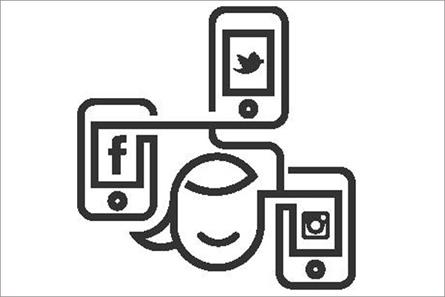Famed for their always-on approach to social media, mobile technology and obsession with celebrity culture, our study of 2,000 17- to 31-year-olds exposes a different picture, says Bite's Justin Pearse.
 Marketers have a reductive habit of labelling each new generation with easy-to-digest labels and generalisations. There are of course some sweeping generalisations that are both useful and based on some large grains of truth.
Marketers have a reductive habit of labelling each new generation with easy-to-digest labels and generalisations. There are of course some sweeping generalisations that are both useful and based on some large grains of truth.
As a member of Generation X, indelibly associated with Douglas Copeland in my mind, I certainly displayed many of the common clichés.
Generation Y, more commonly known as the Millennial generation, seem however laden with far more broad-brush labels and commonly held projected beliefs than I ever was. In fact a now slightly infamous Time front cover feature this year branded them the "Me Me Me Generation", who lived their lives through screens – mobile, tablet or PC – and felt entitled to success.
Another recent report labelled Generation Y managers as "entitled", scoring significantly low as hard-working team players.
There's no doubt the digital revolution is the root cause of much of the clichéd beliefs around Millennials. This is the first generation of people who have grown up with the internet. For Millennials, born after 1981 and before 2004, technologies such as mobile phones, games consoles and the full gamut of connected devices, have always been part of their lives.
For non digital natives looking on in wonder, it is even easier to think of Millennials as a homogenous group. It's a truism that Millennials spend their lives on social media, are obsessed with fame and celebrity, and far more interested in their mobile phone than picking up a book.
A large new piece of research however, The Millennial Index, carried out by Bite and Redshift Research, exploded a lot of the myth surrounding this generation, providing a refreshingly different view of their behaviour, motivations and values.
The research was based on interviews with 2,000 Millennials in the US and UK in August, on their use of digital media, with 144 detailed questions. No research is perfect, but this was a robust study that unearthed some surprising findings.
It's obvious Millennials are big social media users. However, it's far from true they spend all their lives on the likes of Facebook and Twitter. The Millennial Index report in fact found only 41% spend more than three hours a week on Facebook and 29% spend more than three hours on YouTube.
There is no denying Facebook's hugely powerful position in people's lives today. However, these results show that any brand happy to pour its entire marketing budget into social media – and there have been many of those in recent years – is in danger of missing a trick.
Maybe they're all on Twitter instead? Actually, 43% aren't even on Twitter at all. It turned out that this "social media-mad" generation spends more time on work or study related forums and user groups than on services such as Tumblr, Instagram or Pinterest.
Social media is clearly an incredibly important part of this generation’s daily life. But it's only one part. Again, it's so important not to be blindsided by the dizzying explosion of digital media in this generation's lives to believe it is all consuming.
It certainly doesn’t seem to be replacing the more traditional forms of entertainment many bemoan have been eclipsed by the digital alternatives. Games and other forms of digital entertainment naturally scored high among the interests of Millennials. Refreshingly, certainly for me, books remained important. While 26% of female Millennials chose games as one of their most important hobbies, almost three times as many, 61%, said they spent more time reading books.
When they do put down that book to play games or other type of digital fun, we assume their favourite, indeed increasingly only way to do this is via mobile. Not entirely true, it turned out. It is impossible to argue against the dramatic rise of the mobile internet. We know mobile is globally becoming a prime means of accessing the internet. The mobile-first strategy announcements that have become a flood from brands across the board do have their genesis in fact.
However, once again, it’s dangerous to believe an entire generation has already made this momentous shift. The Millennial Index report found that 65% still spend more time accessing the internet via a laptop or PC rather than via their smartphone or tablet.
There is no doubt this fascinating generation will continue to be the focus of studies and surveys attempting to understand how the incredible technological advances we have experienced in digital media are both causing and enabling behaviour change.
The Millennial Index, the findings of which I've only touched on here, will itself be a long-term study into this generation. What is clear though, is the danger of simply throwing this entire generation into one simplistic digital bucket.
Justin Pearse is head of marketing at Bite Communications